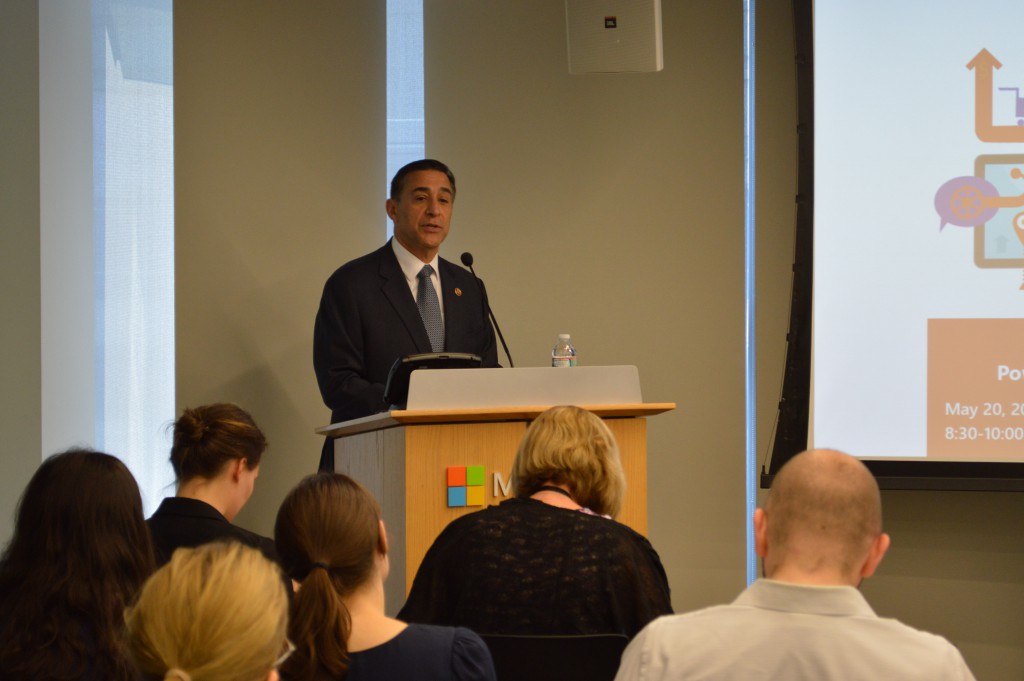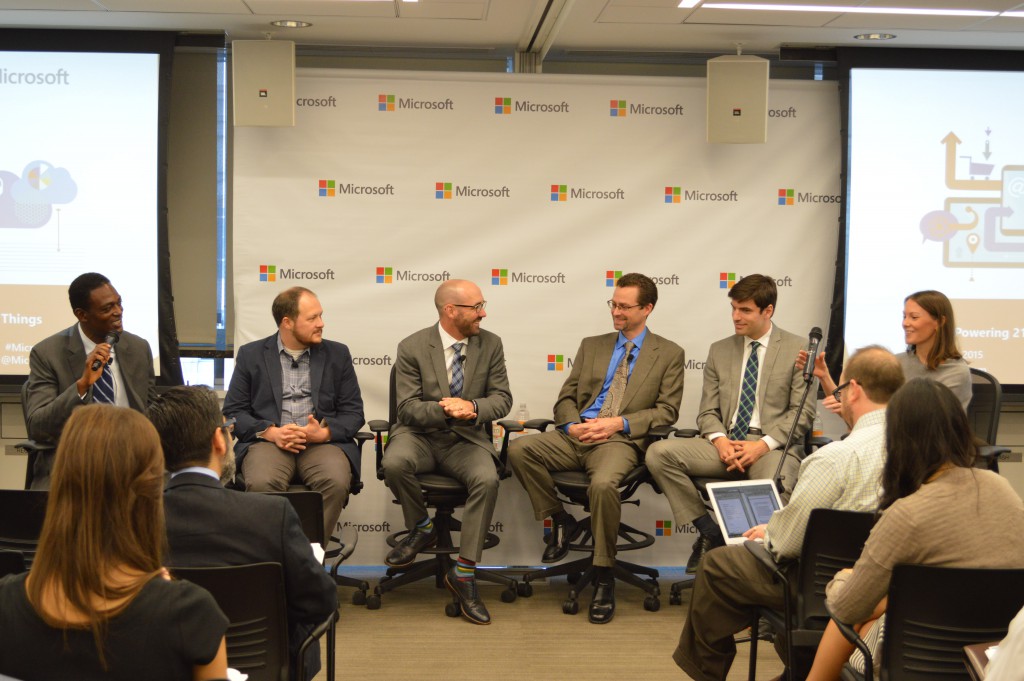Cities drive our global economy – 80 percent of the world’s GDP is created in cities and 70 percent of the world’s population will live in cities by 2050. To keep pace rapid urban development, technology innovations can be leveraged to create healthier, safer and more sustainable modern communities. Our increasingly connected world of devices – the Internet of Things (IoT) – presents immense opportunity to transform the ability of cities to offer new services to their residents, optimize the efficiency of existing services and improve the overall sustainability and resiliency of their communities.
On May 20, the Microsoft Innovation & Policy Center in Washington, D.C., hosted a discussion on “Powering 21st Century Cities with the Internet of Things.” The event brought together experts who addressed how governments and localities are using innovations in technology and new types of public-private partnerships to operationalize smart cities. The second in a series of @Microsoft conversations on the Internet of Things, the event explored how technology is empowering smart city solutions as well as looking at the challenges that city leaders face when modernizing.
Rep. Darrell Issa (R-California) joined the conversation to discuss the newly formed Congressional IoT Caucus and the role of government in facilitating the future of IoT. Issa, chairman of the Subcommittee on Intellectual Property, Courts and the Internet, and Rep. Suzan DelBene (D-Washington) announced the launch of the IoT Caucus earlier this year. It focuses on educating members of Congress on the development of innovative technology and public policy in the IoT space.

Microsoft’s Elizabeth Grossman opened the event with a discussion of how emerging technologies, sustainability and public-private partnerships come together in smart cities. Following her remarks, Dean Garfield, president and CEO of the Information Technology Industry Council, moderated an engaging panel with Caralynn Nowinski, executive director of UI LABS; Daniel Correa, senior advisor on innovation for the White House Office of Science and Technology Policy; Dan Hoffman, chief innovation officer at Montgomery County, Maryland; David Doll of OSIsoft, LLC; and Joel Paque of The Nature Conservancy.
The experts agreed that IoT has the potential to disrupt nearly every public sector function, from enabling inspections to be scheduled by sensors and data rather than calendars, to providing new approaches to effective storm water management. Building and executing on a vision of how cities will operate in the future involves collaboration and perspectives of multiple groups – government agencies, large and small companies, universities and a growing community of civic organizations. Partnerships and infrastructure can help cross the barriers among those institutions, whether for sharing best practices, resolving mismatched timescales between start-ups and government or government and research, or integrating data and goals across sectors and silos. Read more highlights from the conversation on ITI’s TechWonk blog.

Microsoft CityNext is one example of an industry initiative that is bringing IoT to life in cities all over the world. CityNext is a people-first approach to innovation that empowers government, business and citizens to develop modern, more livable cities. CityNext enables cities to operate more efficiently and serve citizens as “One City” across critical functions. Through a strategic partnerships, cities can enable sustainable cycles of innovation, opportunity and progress for years to come.
Each month, the Microsoft Innovation & Policy Center in Washington, D.C. hosts the @Microsoft series, featuring panel discussions with members of Congress, administration officials and leading experts on a wide range of topics. The events are free, open to the public and present an opportunity to engage in policy debates with thought leaders at the highest levels of government. To learn more about this and other events, please follow @MicrosoftIPC on Twitter or visit the Innovation & Policy Center’s Facebook page.
